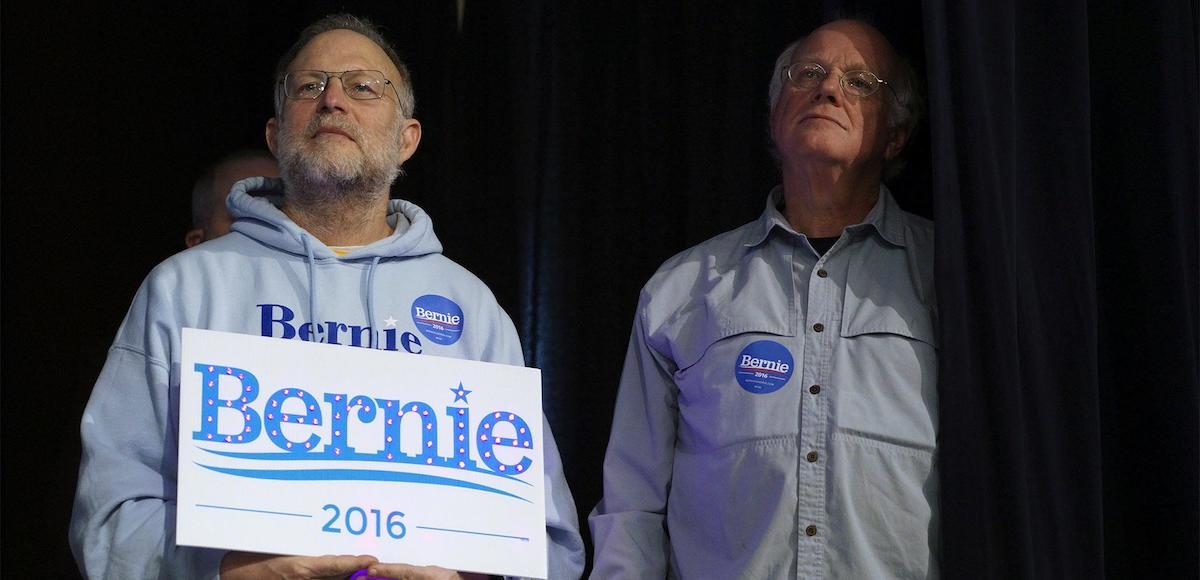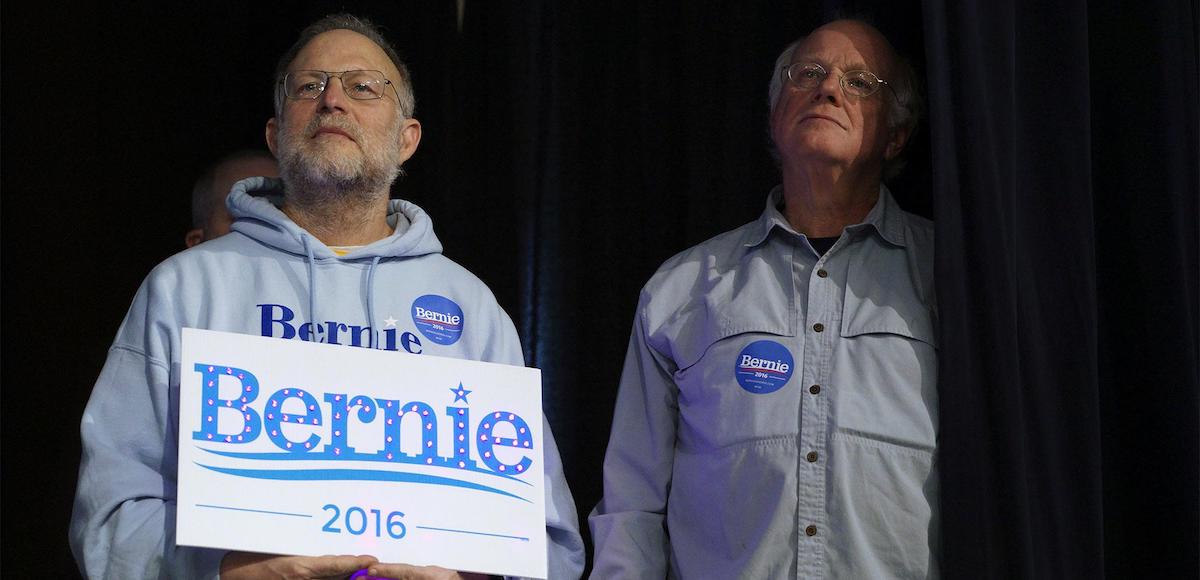

Ben Cohen, right, and Jerry Greenfield, left, at a rally for socialist Vermont Senator Bernie Sanders in Exeter, N.H., February 2016. (Photo: Reuters)
Earlier this year, I explained why Nordic nations are not socialist. Or, to be more precise, I wrote that if they are socialist, then so is the United States.
And my slam-dunk evidence was this chart from the Fraser Institute’s Economic Freedom of the World., which shows that there is almost no difference in overall economic liberty when comparing the United States with Finland, Norway, Sweden, and Denmark.
This doesn’t mean, incidentally, that we have identical policies. I pointed out that the United States gets a better (less worse) score on fiscal policy, but also reiterated that Nordic nations are more market oriented than America when looking at other variables (especially rule of law).
The net effect, though, is that we wind up with near-identical scores.
I’m rehashing this old data because there’s a column in The Week that celebrates Norway as an example of “democratic socialism.”
The spectacular upset victory of Alexandria Ocasio-Cortez in her recent New York congressional primary election has catapulted the topic of democratic socialism to the top of America’s political discussion. …we have a country that very closely approximates the democratic socialist ideal.
It’s a place that is…considerably more successful than the United States on virtually every social metric one can name. I’m talking about Norway. …Norwegian workers are heavily protected, with 70 percent of workers covered by union contracts, and over a third directly employed by the government. The Norwegian state operates a gigantic sovereign wealth fund, and its financial assets total 331 percent of its GDP… Meanwhile, its state-owned enterprises are worth 87 percent of GDP. Of all the domestic wealth in Norway, the government owns 59 percent, and fully three-quarters of the non-home wealth.
I don’t know if those specific statistics are true, but I certainly don’t disagree with the assertion that Norway has a large public sector.
But here are a couple of passages that don’t pass the laugh test.
Norway is unquestionably more socialist than Venezuela… Indeed, it is considerably more socialist than supposedly-communist China.
This is absurdly inaccurate. If there was a thermonuclear version of wrong, you would be seeing a giant mushroom cloud.
Here’s the data on overall economic freedom for Norway, Venezuela, and China. As you can see, Norway is far more market oriented.
So how does the author, Ryan Cooper, rationalize his fantastical assertion of Norwegian super-socialism?
If you read the article, he has a tortured definition of democratic socialism. One of his variables is government ownership, which normally would be a reasonable piece of data to include.
But it’s an artificial number when looking at Norway since the government controls the nation’s oil and also has a big sovereign wealth fund that was financed by oil revenue.
In other words, Norway is geographically lucky because all that oil boosts Norwegian GDP. It makes Norwegians relatively prosperous. And it definitely helps partially offset the economic damage of big government.
But it’s nonsensical to argue that oil-rich Norway somehow provides evidence for overall notion of democratic socialism. It’s sort of like looking at data for Kuwait and asserting that the best economic system is a hereditary sheikdom.
Yet he wants people to support socialism simply because of Norway, as illustrated by this final excerpt.
…when it comes to building a decent place to live, Norway is completely blowing America out of the water. So while conservatives have been pointedly ignoring the most obvious and relevant piece of evidence in their spittle-flecked tirades against socialism, Norwegians can and do point to the United States as an example of what happens when you let capitalism run wild.
But there’s one itsy-bitsy, teeny-weeny problem. As you can see from the chart, Norway and the United States have almost identical levels of economic liberty.
So if America is “capitalism run wild,” then so is Norway. Or if Norway is “socialism,” then so is the United States.
The bottom line is that both the United States and Norway are admirable nations by global standards. We both rank in the top-20 percent for overall economic freedom.
But we’re not Hong Kong or Singapore, so we both obviously should do a better job of following the recipe for greater prosperity.
For additional information about what’s good and bad about Norway and other countries in the region, I recommend these columns from January 2015 and June 2015.
For additional information about why socialism is bad (both democratic and totalitarian versions), just open your eyes and look at world evidence. Or you can also peruse these columns from June 2017 and August 2017.










Julie Marx / July 15, 2018
There is no such party as Democratic Socialism, you have Democrat, Republican, Independent, Communism and Socialism , QUIT trying to sugarcoat Socialism !
/
Christopher Bowen / July 15, 2018
They latch onto anything to validate their leeching. Liberal Socialists are parasites.
/
Tom Steinbrenner / July 15, 2018
Nah…. liberals are “Not” doing everything possible to keep the borders open just so more illegal Democrats can cross… that’s tin-foil hat conspiracy shit right there….
https://www.google.com/amp/s/amp.washingtontimes.com/news/2018/jul/12/immigrants-find-noncitizen-voter-registration-easy/
/